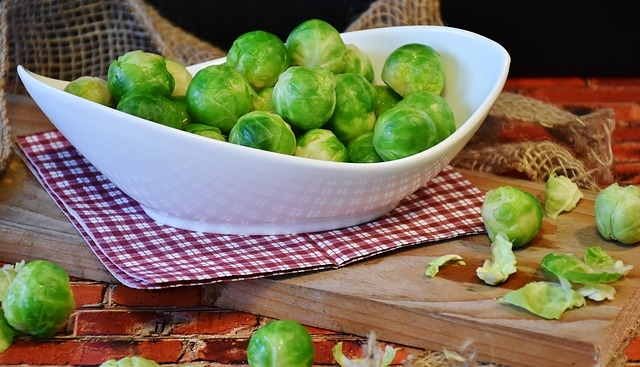
It wasn't until many years later that I stumbled upon the secret to enjoying Brussels sprouts - never overcook them! As Brussels sprouts simmer, a sulfur compound is unleashed, and the longer they cook, the more that infamous odor intensifies. Properly preparing Brussels sprouts eliminates this sulfurous affliction and transforms them into a delectable dish.
Could it be that our genetic makeup plays a role in the great Brussels sprouts divide? It's entirely possible.
In 2011, the renowned Eden Project in the UK's Cornwall delved into this culinary conundrum. Researchers uncovered a genetic explanation for why some adore Brussels sprouts while others recoil in disgust. The key player here is a chemical compound known as phenylthiocarbamide (PTC), which imparts a bitter taste to those who possess a specific gene variation. This fascinating study pinpointed the TAS2R38 gene as the culprit, working in tandem with PTC to create a bitter sensation on the palate. Astonishingly, roughly half of the global population carries a mutation of this gene. In other words, the fortunate half with the mutated gene cannot detect the bitterness, and I count myself among them, as I've come to relish properly prepared Brussels sprouts.
Brussels sprouts will never be universally adored. They remain a divisive vegetable, causing a culinary chasm that separates those who revel in their unique flavor from those who would rather steer clear.
As the fall harvest season rolls around, you may find yourself with an abundance of Brussels sprouts from your garden or the local market. While they're delightful when fresh, preserving these miniature cabbages can ensure you savor their deliciousness throughout the year. From freezing to pickling, there are several methods to home-preserve Brussels sprouts and keep their goodness intact.
- FREEZING - Freezing Brussels sprouts is one of the easiest and most popular methods of preservation. Follow these steps for optimal results: National Center for Home Food Preservation
- PICKLING - Pickled Brussels sprouts add a delightful tangy twist to your pantry. Try out this recipe: National Center for Home Food Preservation
- DEHYDRATING - Dehydrating Brussels sprouts is a space-saving method that results in crispy, nutritious snacks. Follow these steps:
- Preparation: Clean, trim, and cut the Brussels sprouts into thin slices or halves.
- Blanching: Blanch the slices for a few minutes to preserve color and nutrients, then cool them in ice water.
- Dehydrating: Arrange the blanched Brussels sprouts on dehydrator trays and dry them according to your dehydrator's instructions. This can take several hours.
- Storage: Once completely dehydrated, store the crispy Brussels sprouts in airtight containers in a cool, dry place.
Preserving Brussels sprouts at home allows you to enjoy their flavors and nutrients year-round. Whether you prefer the crispness of frozen sprouts or the tangy kick of pickled ones, these preservation methods ensure that you won't have to wait until the next harvest season to savor these delightful green gems. So, roll up your sleeves and start preserving your Brussels sprouts today!